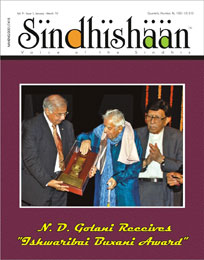ROLE OF JOB PROSPECTS IN PROMOTING ENGLISH
A majority of F&B (food and beverage) outlets, a sector that employ large numbers of young people, insist that employees speak to customers in fluent and correct English. Manpreet Gulri, development agent for Subway, a popular fast food chain, says, "If an employee speaks good English he/she can communicate far better with our customers. We are an international brand, and our customers come from cross-sections of society. Communicating in English becomes necessary."
Karishma Dhawan, human resource manager, Oxford Bookstore, agrees with Gulri. She says that it is important for the staff to be well-versed in English because that's the language of the books they stock. "The staff should understand the buyer's needs and should be familiar with the content of the books," she says. "We get a huge number of applications and many of them are rejected because candidates are unable to speak in English. Certain job profiles like that of sales executives, store managers and public relations executives require candidates to talk confidently to customers in English. It is a musthave skill."
Who would know this better than Aditya, a small-time computer repair rookie operating out of the crowded Nehru Place market in New Delhi. Desperately looking for a regular salaried job for months now, Aditya, who originally belongs to a small town in Bihar, shifted to the capital in the summer of 2006. He was hit by a reality check in no time. He didn't know English. "I am ready to enroll into a language school and learn English so that I can secure a better job," he says. "You are finished if you can't speak English."
English doesn't just get you a job. Growth prospects multiply with this increasingly important tool. Chambers of Commerce note that the difference in salary between equally qualified (nonprofessional /technical) candidates could be as high as 400 per cent depending on their proficiency in English.
Employers too are doing their bit to ensure their staff can converse in English. Vipul Gupta, executive director at The Metropolitan Hotel in New Delhi, says, "The management conducts regular English classes for employees whose communications skills are weak. English is the most used language in the Indian hospitality sector. Therefore, applicants with a sound knowledge of the language stand a better chance of being selected."
Career counsellor Usha Albuquerque explains the importance of being able to communicate in English in both personal and professional spheres. "English," she says, "is the language of the work-force . Anyone who wants to express himself/herself at a national or international level has to be well-versed in the language. Practically every job that requires written and verbal skills will demand knowledge of English. Moreover, in a culturally diverse subcontinent like ours, where every state and region has its own regional language, communicating in a powerful common language like English becomes imperative."


